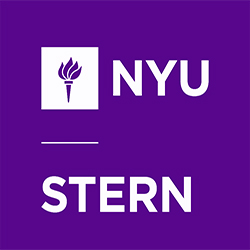 Kendra Spruill is a current Full-time MBA student, specializing in Strategy and Leadership & Change Management. Prior to Stern, Kendra worked in the Non-profit sector. Post-MBA, she plans to be a Senior Consultant at Deloitte. At Stern, she was the Co-president of AHBBS, a part of SWIB, Stern Adventures, and MCA.
Kendra Spruill is a current Full-time MBA student, specializing in Strategy and Leadership & Change Management. Prior to Stern, Kendra worked in the Non-profit sector. Post-MBA, she plans to be a Senior Consultant at Deloitte. At Stern, she was the Co-president of AHBBS, a part of SWIB, Stern Adventures, and MCA.
Will I fit in? That’s a common question that you may ask yourself while looking for your perfect business school. The student population matters and you want to make sure that you are with people who you can work with, and build lifelong friendships. With business school being as social as it is, it’s crucial to find your community. Fortunately, at a place like Stern, everyone belongs. What’s more reassuring is that there are affinity clubs to lean on to make sure that you find your right community.
Affinity clubs provide an opportunity for those of similar backgrounds to connect on a deeper level that you may not necessarily get to do on a daily basis. Being at a school where there are so many people from different backgrounds, it’s difficult to really connect with one type of person. The two affinity clubs that I am a part of are SWIB (Stern Women in Business) and AHBBS (The Association of Hispanic and Black Business Students). Though these clubs highlight those of a specific identity, allies are welcome to join and truly help make the clubs the successes that they are today.
Before becoming co-president of AHBBS, I was very eager to meet people who came from a similar background as me. AHBBS has given me a community to lean on when I struggled with quant classes, classmates to work with on group projects, and more importantly, two bridesmaids in my upcoming wedding! Affinity clubs are crucial in many ways: Helping minority students like myself fit in, allowing international students have a space to speak in their native tongue, reiterating the importance of allyship and understanding cultural influences in business, and providing a safe space for students to challenge and explore. I am forever grateful to the affinity groups at Stern that have helped shape my overall positive experience at Stern.









 Adam Smith is a Director of MBA Admissions. Adam has worked on our Operations team for over 9 years and is a graduate of the Langone Part-time MBA. Outside of work, you are most likely to find him playing or watching tennis!
Adam Smith is a Director of MBA Admissions. Adam has worked on our Operations team for over 9 years and is a graduate of the Langone Part-time MBA. Outside of work, you are most likely to find him playing or watching tennis!
